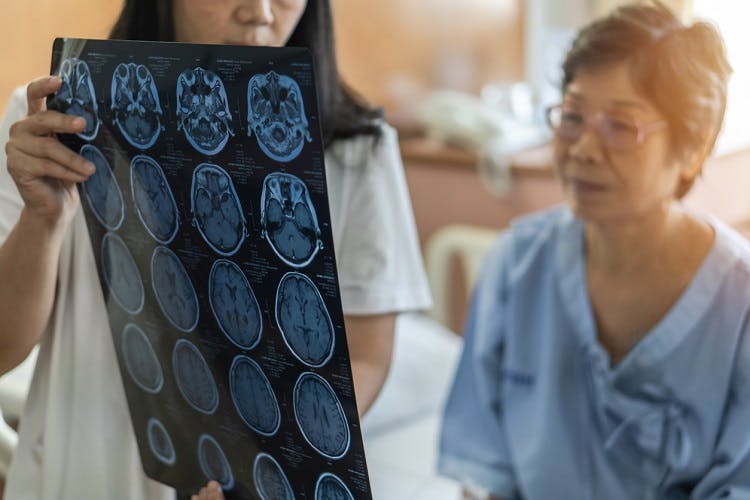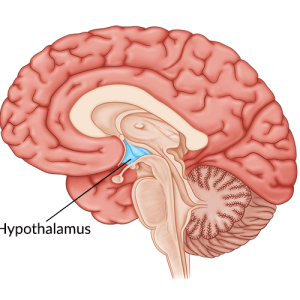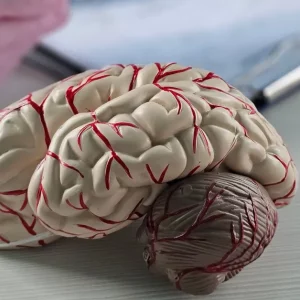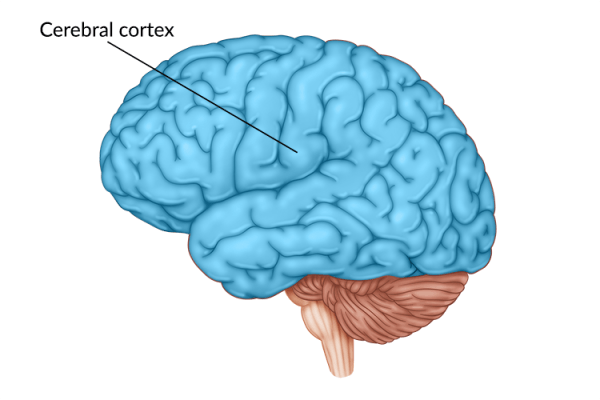Traumatic brain injuries can be classified as mild, moderate or severe. Moderate tbi makes up only about 10 percent of all traumatic brain injuries. Typically, secondary effects of moderate brain injury vary depending on the location of damage and can include cognitive, physical and emotional changes. However, while some effects can be permanent, many individuals are able to experience a positive recovery from moderate tbi.
In general, most studies on traumatic brain injury focus on either mild or severe tbi. Furthermore, when moderate brain injury is studied, it is often paired with severe brain injury. This makes it challenging to fully understand the impact of moderate tbi and how to recover from it. In this article we will explore what is considered a moderate tbi, the secondary effects, and what to expect as well as how to optimize recovery!
To jump to an individual section, click the links below:
- What is considered a moderate brain injury?
- Secondary effects
- How to optimize recovery
- Recovery outlook
What is Considered a Moderate Brain Injury?
Traumatic brain injury occurs when an individual experiences a blow to the head or body that results in brain damage. Although there are multiple diagnostic options to identify the severity of a TBI, the Glasgow Coma Scale is widely used due to its simplicity. Responses in three areas (eye opening, verbal, and motor) are measured, resulting in a score of 3-15.
Scoring between 9 and 12 (or 13) on the Glasgow Coma Scale means that the individual has sustained a moderate brain injury. Oftentimes, individuals will experience a loss of consciousness for 30 minutes to 24 hours following their injury.
Common causes of moderate brain injury include falls and motor vehicle accidents, with one large study connecting these incidents to 43% and 34% of injuries, respectively. Other significant causes of moderate tbi include firearm-related injuries and assault.
Moderate traumatic brain injuries can be contained to one specific area of the brain, but often are more widespread. As different areas of the brain control different functions, the secondary effects experienced due to moderate brain injury vary significantly based on the location of damage.
Secondary Effects of Moderate TBI
Secondary effects of moderate brain injury can be categorized as:
- Cognitive changes: confusion, loss of memory, problems with concentration and learning
- Physical effects: weakness, balance difficulties, decreased coordination
- Language difficulties: trouble with comprehension and clear communication
- Sensory changes: altered perception of sensory input, problems with hearing and vision
- Emotional effects: anxiety, depression, anger, experiencing intense emotions
- Behavioral problems: impulsivity, lack of inhibition, personality changes
Individuals with moderate brain injury often do not experience all of these secondary effects, but may experience different combinations of these effects depending on the location of their brain damage. Each brain injury is unique, resulting in secondary effects of various types and intensities.
How to Optimize Recovery After Moderate TBI
The recovery journey is different for everyone. One of the best ways to optimize recovery is to activate neuroplasticity. This is a process through which the brain can rewire itself, moving the regulation of affected functions to healthy areas of the brain. Repetition promotes neuroplasticity, which is why many rehabilitative techniques involve repetitive exercises and activities.
Individuals with moderate brain injury may benefit from the following treatments:
Physical Therapy
Physical therapy works on improving movements through exercises and hands-on techniques. They may address weakness, balance challenges, and altered gait (walking) patterns, among other motor-related issues.
Occupational Therapy
Occupational therapists focus on increasing participation and independence in daily activities. They may use activities to improve skills needed for getting dressed, making a meal, managing money, working, or other functional tasks. Sensory changes can also be addressed during occupational therapy. Compensatory techniques, such as the use of adaptive equipment, may be introduced though occupational therapy as well.
Speech Therapy
Communication, cognition, and eating/swallowing challenges can all be addressed during speech therapy. Speech therapists can utilize oral-motor exercises to improve strength and coordination of the muscles of the mouth to improve speaking and eating abilities. They may also address cognitive changes, such as limited memory and concentration, through exercises and activities involving these skills.
Cognitive Rehabilitation
Since cognition is often impacted during moderate brain injury, cognitive rehabilitation is an excellent treatment option. Cognitive rehabilitation may consist of restorative and compensatory methods to improve cognitive functioning.
Restorative techniques focus on improving specific skills, often through repetitive exercises. For example, if someone struggles with their working memory skills, a cognitive rehabilitation session may focus on improving these skills through a memory game, such as concentration.
Conversely, compensatory techniques refer to options used to make up for cognitive deficits, such as using notes and alarms as reminders. Cognitive rehabilitation is often most effective when used in conjunction with other therapies.
Transcranial Direct Current Stimulation
Although still considered experimental, transcranial direct current stimulation is a promising option for boosting recovery after moderate brain injury. It is a non-invasive, pain-free intervention involving two electrodes placed on the head to stimulate specific areas of the brain.
Transcranial direct current stimulation has been demonstrated to improve recovery outcomes following traumatic brain injury in various studies, although it is most beneficial when used in addition to more traditional rehabilitative strategies.
Support Groups
Support groups are helpful not only for individuals who have sustained a moderate brain injury, but also for their loved ones. A support group emphasizes the value of shared experiences, allowing survivors and their families to celebrate victories, discuss challenges, and learn from others in similar situations.
Recovery Outlook for Moderate Brain Injury Survivors
Moderate brain injury survivors may experience some challenges on their road to recovery.
One study followed 395 individuals who had sustained a moderate brain injury. At one year after injury, it was found that while very few individuals died (6%) or had severe disabilities (8%), 44% of individuals were considered moderately disabled.
However, a different study of over 70 individuals with moderate tbi found that 75% of individuals experienced favorable outcomes one year after injury. Furthermore, in this same study, one in three individuals reported no disability one year post-injury.
Factors that have been associated with poorer recovery outcomes include old age, hypotension (low blood pressure) upon hospital admission, and polytrauma.
Although there are mixed recovery outcomes based on the research, new treatments are consistently being studied to promote better recoveries.
Understanding Moderate TBI
While there is limited research focused specifically on moderate brain injury, there are many cases diagnosed each year. A moderate brain injury can result in various cognitive, physical, and psychological secondary effects. Pursuing treatment focused on optimizing neuroplasticity is an excellent way to improve your recovery outlook and experience a positive recovery.










